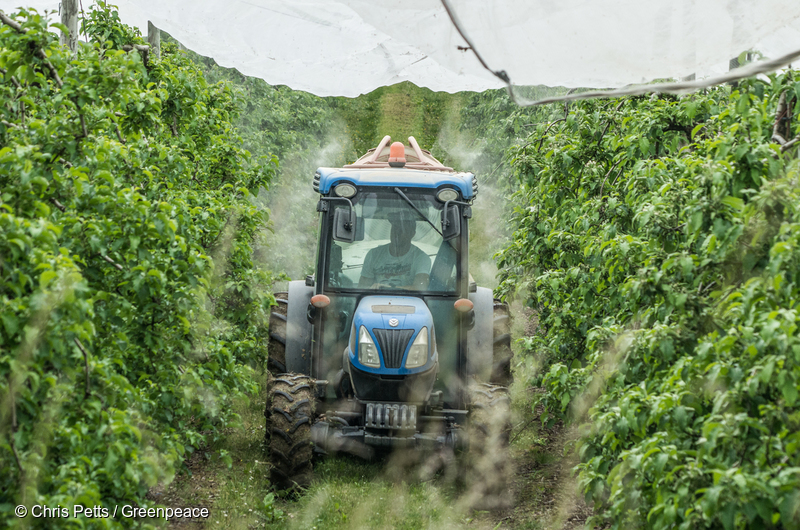Today the European Parliament agreed with the European Commission that agricultural land dedicated to the preservation of biodiversity must not be treated with pesticides, rejecting an attempt by the Parliament’s agriculture committee to block this ban.
Greenpeace EU agriculture policy director Marco Contiero said: “It is high time that the use of pesticides is banned on agricultural lands that have been dedicated to biodiversity protection. It would have been outrageous not to. The EU is about to enter into an indispensable reform of its agriculture policy, so today’s decision will not be the last in the battle for ecologically sound farming that sustains people, animals and the planet.”
Since the 2013 reform of the common agriculture policy, farmers have to identify so-called ecological focus areas, covering 5 per cent of EU farmland. In these areas, farming practices must benefit biodiversity and protect the climate. These rules were progressively weakened and now allow for the planting of certain crops (legumes and catch crops) and the spraying of chemical pesticides.
In February, the Commission used its delegated powers to change these rules, prohibiting pesticide-use in ecological focus areas. Two members of the European Parliament’s agriculture committee, Albert Dess and John Stuart Agnew, subsequently proposed a Parliamentary veto to this ban, which was narrowly rejected by today’s plenary vote. The proposed veto received 363 votes, falling short of the required qualified majority of 376.
Contacts:
Marco Contiero – Greenpeace EU agriculture policy director: +32 (0)477 777 034, [email protected]
Greenpeace EU press desk: +32 (0)2 274 1911, [email protected]
For breaking news and comment on EU affairs:www.twitter.com/GreenpeaceEU
Greenpeace is an independent global campaigning organisation that acts to change attitudes and behaviour, to protect and conserve the environment and to promote peace. Greenpeace does not accept donations from governments, the EU, businesses or political parties.

